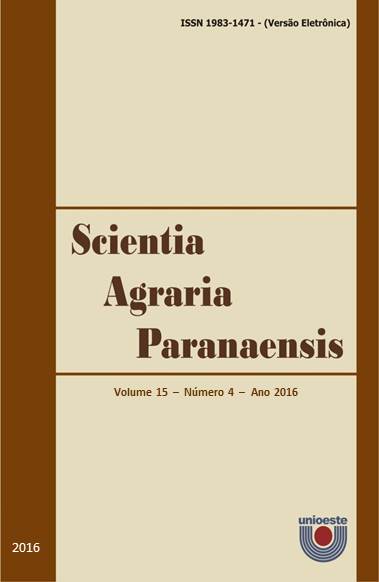Dimensional stability of the wood clones Eucalyptus spp.
DOI:
https://doi.org/10.18188/sap.v15i4.12999Keywords:
Anisotropia de contração, qualidade da madeira, retratibilidade.Abstract
The study of the dimensional stability of the wood is essential for industrial use, both in construction and the manufacture of furniture. The dimensional instability of the wood is a relevant problem that occurs during its beneficiation, as a consequence of the change in moisture content, and that shall be considered to determine the best end use for the same. From the exposed, the objective of this study was to evaluate the dimensional variations of maximum volumetric and linear, beyond the stability of wood three clones of Eucalyptus spp. For so much, were used three different hybrids of Eucalyptus: Eucalyptus saligna x Eucalyptus saligna, Eucalyptus urophylla x Eucalyptus grandis e Eucalyptus urophylla x Eucalyptus globulus. The preparation of specimens and the determination of dimensional variation of the wood were performed according to standard COPANT 30:1-005. It was concluded that the clone Eucalyptus urophylla x Eucalyptus globulus presented the best results about the dimensional changes of the wood, and regarding the dimensional stability, the three clones showed satisfactory performance, classified as normal, and can be used in products such as tables, cabinets and other purposes that allow small degree of warping.Downloads
Published
07-12-2016
How to Cite
FREITAS, D. L. de; CARVALHO, D. E.; BELTRAME, R.; SANTOS, G. A. dos; GATTO, D. A.; HASELEIN, C. R. Dimensional stability of the wood clones Eucalyptus spp. Scientia Agraria Paranaensis, [S. l.], v. 15, n. 4, p. 435–439, 2016. DOI: 10.18188/sap.v15i4.12999. Disponível em: https://e-revista.unioeste.br/index.php/scientiaagraria/article/view/12999. Acesso em: 23 jul. 2025.
Issue
Section
Scientific Article
License
Aviso de Direito Autoral Creative Commons
Política para Periódicos de Acesso Livre
Autores que publicam nesta revista concordam com os seguintes termos:
1. Autores mantém os direitos autorais e concedem à revista o direito de primeira publicação, com o trabalho simultaneamente licenciado sob a Licença Creative Commons Attribution que permite o compartilhamento do trabalho com reconhecimento da autoria e publicação inicial nesta revista.2. Autores têm autorização para assumir contratos adicionais separadamente, para distribuição não-exclusiva da versão do trabalho publicada nesta revista (ex.: publicar em repositório institucional ou como capítulo de livro), com reconhecimento de autoria e publicação inicial nesta revista.
3. Autores têm permissão e são estimulados a publicar e distribuir seu trabalho online (ex.: em repositórios institucionais ou na sua página pessoal) a qualquer ponto antes ou durante o processo editorial, já que isso pode gerar alterações produtivas, bem como aumentar o impacto e a citação do trabalho publicado (Veja O Efeito do Acesso Livre).
Licença Creative Commons
Esta obra está licenciada com uma Licença Creative Commons Atribuição-NãoComercial-CompartilhaIgual 4.0 Internacional, o que permite compartilhar, copiar, distribuir, exibir, reproduzir, a totalidade ou partes desde que não tenha objetivo comercial e sejam citados os autores e a fonte.


